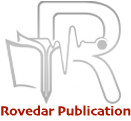Rovedar is committed to high standards of academic publishing principles. Rovedar requires all editors, authors, reviewers, and staff to disclose any potential conflicts of interest which might affect professional judgment as it relates to the editorial and peer review process of submitted manuscripts. For the purposes of this disclosure statement, a conflict of interest occurs when an editor, author, or reviewer has a beneficial or personal relationship with a third party which could bias or compromise his or her academic or professional objectivity. Editors, reviewers and authors are responsible for disclosing potential conflicts of interest that could potentially impact manuscript submissions or reviews.
Please complete the following disclosure form for potential conflict of interest:
Form is loading
Please Wait
Easy Form Builder
In the event a conflict of interest is identified the following procedures will be implemented :
Authors :
If an author is determined to have a conflict of interest regarding a manuscript submitted for review to an Rovedar journal the journal editor or editorial staff shall be responsible for notifying the reviewer(s) of the nature of the potential conflict of interest. The reviewers will evaluate whether the conclusions reached in the manuscript may have been affected by the conflict. If so, the author will be contacted to provide support that the conclusions reached in the manuscript were reached independently and not affected by the potential conflict. Once this support is provided the reviewer(s) is free to reject or accept the manuscript based on the reviewer(s) belief that the conflict had or did not have an effect on the conclusions reached.
Reviewers :
If a conflict of interest between the reviewer and any manuscript review is identified the reviewer is requested to notify the journal editor or Rovedar editorial staff of the conflict and remove himself/herself from the review process. If an author knows of a potential conflict between the author and a member of the journal’s review board, the author may contact the journal editor or Rovedar editorial staff explaining the potential conflict and requesting that specific review-board member not be part of the review process for the author’s manuscript.
Editors :
If an editor is determined to have a potential conflict of interest regarding any individual manuscript the editor may either remove himself/herself from the decision-making process regarding that specific manuscript or the editor may suggest an alternative publishing venue to the author. If an editor is determined to have a potential conflict of interest regarding the journal in general or with Rovedar Publishing the editor will discuss the potential conflict with the Rovedar Director and an appropriate resolution will be determined and implemented. This may include but is not limited to the editor resigning or an associate editor being appointed to mediate potential conflict issues.
